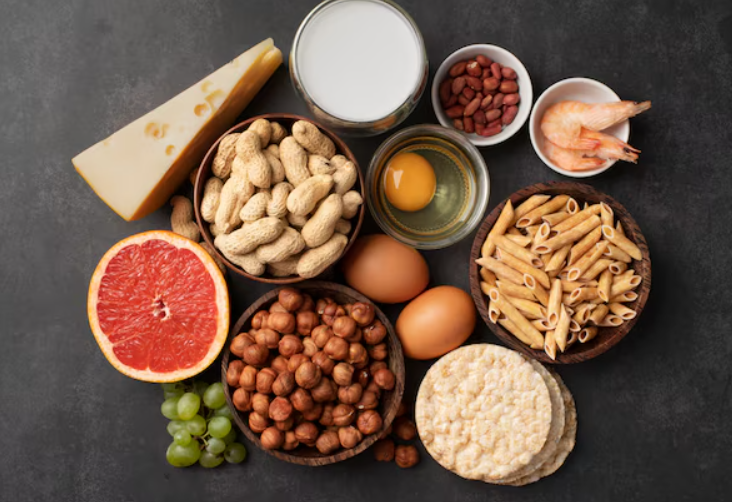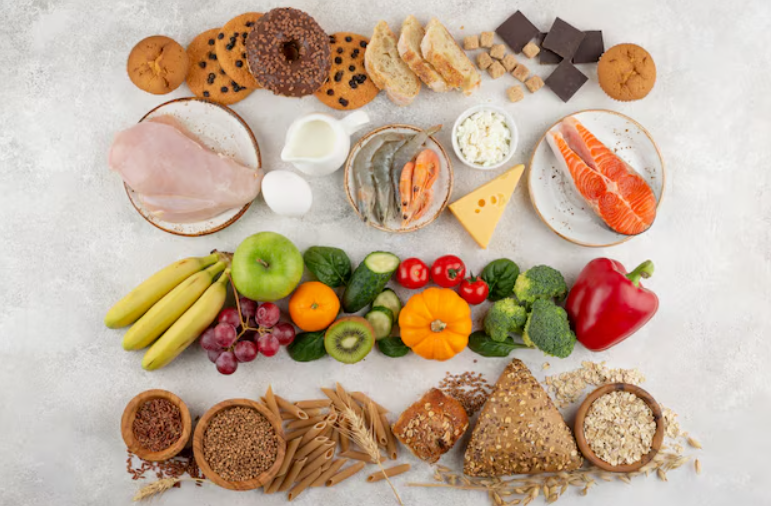The Impact of Joint Inflammation on Mobility
Our mobility and comfort depend on our joints, which enable us to carry out everyday tasks with ease. However, joint inflammation may cause pain, stiffness, and discomfort. While many lifestyle factors, especially nutrition, contribute to the onset and worsening of joint inflammation, conditions like arthritis often cause it. By knowing which foods to avoid, you can manage and possibly prevent joint discomfort since some foods contain substances that trigger inflammation. Below, we will discuss the top ten foods that inflame joints, explaining how they affect joint health and ways to reduce their effects.
Understanding Joint Inflammation and Its Impact on Health
Joint inflammation can be debilitating, but by identifying foods that cause inflammation, you can take control of your health. Eliminating foods such as processed meats, dairy, refined sweets, fried foods, trans fats, refined carbs, alcohol, and vegetable oils can significantly reduce inflammation in your body. Instead, prioritize a diet rich in anti-inflammatory foods, such as lean proteins, whole grains, fruits, vegetables, and healthy fats. By actively managing your diet, you can alleviate joint discomfort and improve your overall health and quality of life.
1. Sweets and Refined Sugars
Refined sugars are major contributors to inflammation in the body. Foods like candy, pastries, sugary drinks, and baked goods contain high levels of sugar, which may increase your body’s levels of advanced glycation end products (AGEs). AGEs form when sugar interacts with proteins or lipids in your body and induce inflammation by stimulating the production of pro-inflammatory substances.
How Sweets and Refined Sugars Impact Joints
The insulin spikes caused by refined sugars can lead to inflammation in your joints and other parts of the body. Excessive sugar intake encourages the production of inflammatory cytokines, which aggravate joint pain and inflammation.
How to Reduce Joint Inflammation from Sugar
- Reduce your intake of sugary snacks and beverages to prevent joint inflammation.
- When craving something sweet, use natural sweeteners like honey or stevia, and focus on whole foods like fruits, which provide natural sugars, fiber, and antioxidants.
2. Fried Foods
Fried foods contribute significantly to joint inflammation. Frying foods at high temperatures creates substances called acrylamides, which may lead to body-wide inflammation. Additionally, cooking with vegetable oils high in omega-6 fatty acids may worsen inflammation.
How Fried Foods Impact Joints
Trans fats, abundant in fried foods, increase inflammation. Omega-6 fatty acids in frying oils (often from vegetable oils like soybean, corn, and sunflower) disrupt the balance between omega-6 and omega-3 fatty acids, leading to inflammation.
How to Reduce Joint Inflammation from Fried Foods
- Try healthier cooking methods such as baking, grilling, or steaming instead of frying.
- Choose healthier oil alternatives like avocado, coconut, or olive oils, which offer anti-inflammatory properties.
3. Dairy Goods
Products such as milk, cheese, and yogurt are commonly linked to inflammation and joint discomfort, especially in individuals who are lactose intolerant or sensitive to casein, the milk protein. Dairy can cause inflammation even in those without lactose intolerance.
How Dairy Products Impact Joints
Arachidonic acid, found in dairy products, transforms in the body into substances that promote inflammation. In some individuals, dairy products may trigger immune responses that lead to joint stiffness, discomfort, and swelling.
How to Reduce Joint Inflammation from Dairy
- If you suspect dairy contributes to your joint discomfort, try eliminating it for a few weeks to see if symptoms improve.
- If dairy is intolerable, consider substitutes like almond or coconut milk, or soy-based products that are rich in anti-inflammatory compounds.
4. Processed Meats
Processed meats such as bacon, sausages, hot dogs, and deli meats contain saturated fats and preservatives that may cause inflammation. Like fried foods and sweets, these meats also contain high levels of AGEs, which exacerbate inflammation.
How Processed Meats Impact Joints
Oxidative stress from the nitrates and nitrites used to preserve processed meats can cause inflammation and joint discomfort. The high-fat content of these meats elevates pro-inflammatory cytokines, further aggravating joint pain.
How to Reduce Joint Inflammation from Processed Meats
- Substitute processed meats with lean protein sources like fish, chicken, and plant-based options such as beans, lentils, and tofu.
- Opt for fresh, unprocessed meats instead of smoked or cured varieties, which are less likely to contribute to inflammation.
5. Gluten
Gluten, the protein found in wheat, barley, and rye, can cause inflammation in people with celiac disease or gluten sensitivity. Even those without a known sensitivity may experience mild inflammation from gluten, which can worsen joint discomfort over time.
How Gluten Impacts Joints
Consuming gluten triggers the release of inflammatory substances that can affect your joints due to a systemic inflammatory response. For those with gluten intolerance, it may cause an immune reaction leading to joint pain and swelling.
How to Reduce Joint Inflammation from Gluten
- Eliminating gluten-containing foods can help alleviate joint discomfort in some individuals.
- Replace gluten-filled grains with gluten-free options such as quinoa, brown rice, and buckwheat, which promote a healthy inflammatory response.
6. Vegetable Oils
Vegetable oils like sunflower, soybean, and corn oils are rich in omega-6 fatty acids, which can worsen joint discomfort and inflammation when consumed excessively. A balanced intake of omega-3 and omega-6 fatty acids is essential for reducing inflammation, but modern diets often contain too much omega-6.
How Vegetable Oils Impact Joints
Omega-6 fatty acids can prompt the production of pro-inflammatory substances, leading to joint stiffness and discomfort. Consuming too much vegetable oil disrupts the omega-6 to omega-3 balance, which fuels inflammation in the joints and other tissues.
How to Reduce Joint Inflammation from Vegetable Oils
- Limit your consumption of vegetable oils and choose healthy fats like avocado, coconut, and olive oils, which help reduce inflammation.
- These oils are rich in anti-inflammatory properties and can help restore the balance of omega-3 and omega-6 fatty acids in your body.
7. Alcohol
Excessive alcohol consumption has been linked to increased inflammation throughout the body, especially in the joints. Alcohol’s effect on the gut lining and its promotion of an imbalance in gut flora can result in systemic inflammation and joint pain. Additionally, alcohol can hinder tissue healing, worsening joint inflammation.
How Alcohol Impacts Joints
Alcohol raises the production of inflammatory cytokines, which can worsen joint pain and stiffness. Long-term alcohol use may also contribute to leaky gut syndrome, allowing toxins to enter the bloodstream and trigger further inflammation.
How to Reduce Joint Inflammation from Alcohol
- If you experience joint discomfort, limit your alcohol intake.
- Consume alcohol in moderation, and if it worsens your symptoms, consider eliminating it from your diet completely.
8. Trans Fats
Trans fats, commonly found in baked goods, margarine, and processed foods, are known to increase inflammation and aggravate joint pain. The hydrogenation process creates these unhealthy fats, which lengthen shelf life but raise inflammatory markers in the body.
How Trans Fats Impact Joints
Trans fats raise the levels of pro-inflammatory cytokines, which exacerbate joint pain and inflammation. They also promote oxidative stress, potentially worsening conditions like arthritis and damaging joint tissues.
How to Reduce Joint Inflammation from Trans Fats
- Avoid foods containing trans fats or partially hydrogenated oils.
- Check food labels for trans fats and choose whole, unprocessed foods that don’t contain these harmful fats.
9. Refined Carbohydrates
Refined carbs like white bread, pastries, and processed snacks are quickly digested, causing blood sugar spikes that contribute to inflammation. In response to these spikes, your body produces insulin, which can trigger the release of inflammatory chemicals affecting your joints.
How Refined Carbs Impact Joints
Refined carbs increase the risk of obesity, a condition that exacerbates joint pain. They also cause blood sugar fluctuations that worsen joint symptoms and promote systemic inflammation.
How to Reduce Joint Inflammation from Refined Carbs
- Replace refined carbs with whole grains such as brown rice, quinoa, and muesli.
- These carbs digest slowly, helping to stabilize blood sugar levels and reduce inflammation, promoting joint health.
10. Synthetic Preservatives and Additives
Artificial preservatives and chemicals in processed and packaged foods can trigger inflammation in the body. Ingredients like food colorings, artificial sweeteners, and monosodium glutamate (MSG) have been linked to joint inflammation.
How Synthetic Preservatives and Additives Impact Joints
These additives stimulate the immune system, raising inflammatory markers in the body. They may also hinder the body’s ability to heal damaged tissues, worsening joint pain and swelling.
How to Reduce Joint Inflammation from Preservatives and Additives
- Avoid packaged and processed foods containing artificial preservatives and additives.
- Opt for whole, fresh ingredients and use natural herbs and spices to season your meals instead of artificial flavorings.

